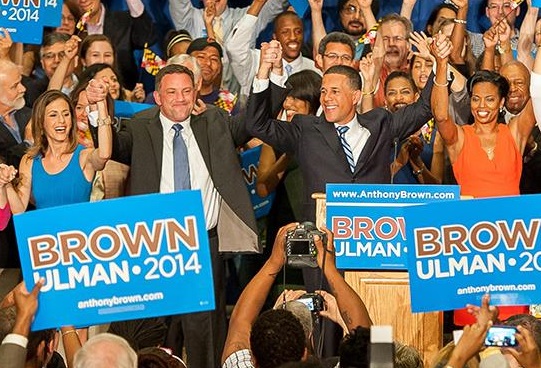By Becca Heller
becca@marylandreporter.com
 Local governments are once again trying to change a requirement that they post legal notices in print newspapers, arguing that in the electronic age they should be able to post online and save taxpayers millions.
Local governments are once again trying to change a requirement that they post legal notices in print newspapers, arguing that in the electronic age they should be able to post online and save taxpayers millions.
Currently, municipal and county governments are required to pay a local newspaper to publish every legal notice and every change to the city law — no matter how minor. The origins of this law are rooted in government transparency, but the Maryland Municipal League (MML) argues that it is outdated and, in some cases, even damaging to municipal legislation.
“We have heard from some cities that they basically have stopped making changes — even though it’s necessary — in their charters, because it costs too much to go through the whole process of publicizing it,” said Jay Davis, MML president.
The bill’s main opposition comes from newspapers, who argue that their publications reach a wider audience than a municipal website.
Ads cost counties, cities about $2 million annually
According to the bill’s fiscal note, the costs for distribution of public notices statewide added up to almost $1.9 million in fiscal 2010, plus another $243,000 for municipalities over two years — a number governments would love to squash by switching over to online distribution of notices.
“Newspapers are losing circulation,” said Takoma Park Mayor Bruce Williams. “That’s a trend that’s going to continue so we’d like a cost-effective alternative to the current system that will allow us to reach a greater audience at far less cost.”
Similar proposals in 2011 and 2012 failed. This year’s HB 1136 seeks, once again, to shift legal notice distribution from print publications to local government websites. The bill would also require local governments to offer a free mail subscription service for residents who would rather get public notices in print.
It’s unclear how much the mail service will end up costing. Some counties reported to the Department of Legislative Services that they thought the mail requirement could wipe out any savings from reducing ad costs.
News organizations say print ads ensure government transparency
After decades of fighting this issue, news organizations know exactly what they’re up against.
“There are two basic arguments behind this bill,” said Frederick News-Post Publisher Geordie Wilson. “One is that it will save money and the other is that it will allow local government to reach out in new ways to more people. Neither stands up to scrutiny.”
Tim Thomas, the senior vice president of business development for the The Baltimore Sun, responded directly to William’s claim that newspapers were becoming a less effective form of reaching constituents.
“While it’s true that the media companies today are suffering from a revenue problem, what we’re not suffering from is an audience problem,” said Thomas. “Baltimorecity.gov gets about 45,000 visits a month. When you compare that with the 7.4 million visits Baltimore Sun.com gets, you can see why we think [HB 1136] is bad public policy.”
Bill could create a precedent for legal notice requirements
Another concern with this bill is the impact it might have on local newspapers. Though most papers would not be significantly impacted by the lack of municipal revenue coming in, it would set up a dangerous precedent.
“This bill, on its own, wouldn’t kill local newspapers at all,” said Jack Murphy, executive director of Maryland Delaware DC Press Association. “The concern is that once these people get permission to put their ads on the internet instead of putting them in newspapers, a whole other class of public notices is going to want to make that transition as well, and that would hurt local newspapers a lot.”
Debate centers on how people get information
Murphy also said that the bill itself represents a departure from the roots of what government is supposed to be.
“I think municipalities look at these public notices more as an annoyance thing — well you know what? It isn’t an annoyance — it’s the way a public government speaks to its constituents and it’s how we ensure transparency and accountability on the part of municipalities,” said Murphy. “This bill doesn’t address the fact that a large chunk of the population still doesn’t have access to [a computer] and will never see these ads if they put them on the internet.”
But the MML doesn’t see it that way.
“Most people are getting their information online now,” said Williams. “So what we’re trying to do is bring the information to them. The reality is, that’s where we’re going in this country.”





Well, if a local government posts their meeting notices, minutes, closing statements, agenda, meeting packets and a videorecording for all their meetings online; plus copies of all documents supplied in response to all PIA requests consistently, then sure. Why not?
Otherwise, no deal.
If the point of local government is to save money, then let’s start saving money by having basic public records online, along with those records that have been provided to someone under the Public Information Act. Gosh, by accident, this also greatly increases transparency.
Interestingly, the argument coming from the local governments about meeting records and PIA documents is that it’s “too expensive” and “too complicated.” Why wouldn’t these notices be “too complicated?” And how would we know when the notices are actually posted?
I don’t think you can have it both ways.
And by the way: local governments are not necessarily very good about taking care of what they already have on a website. How will this be any different?